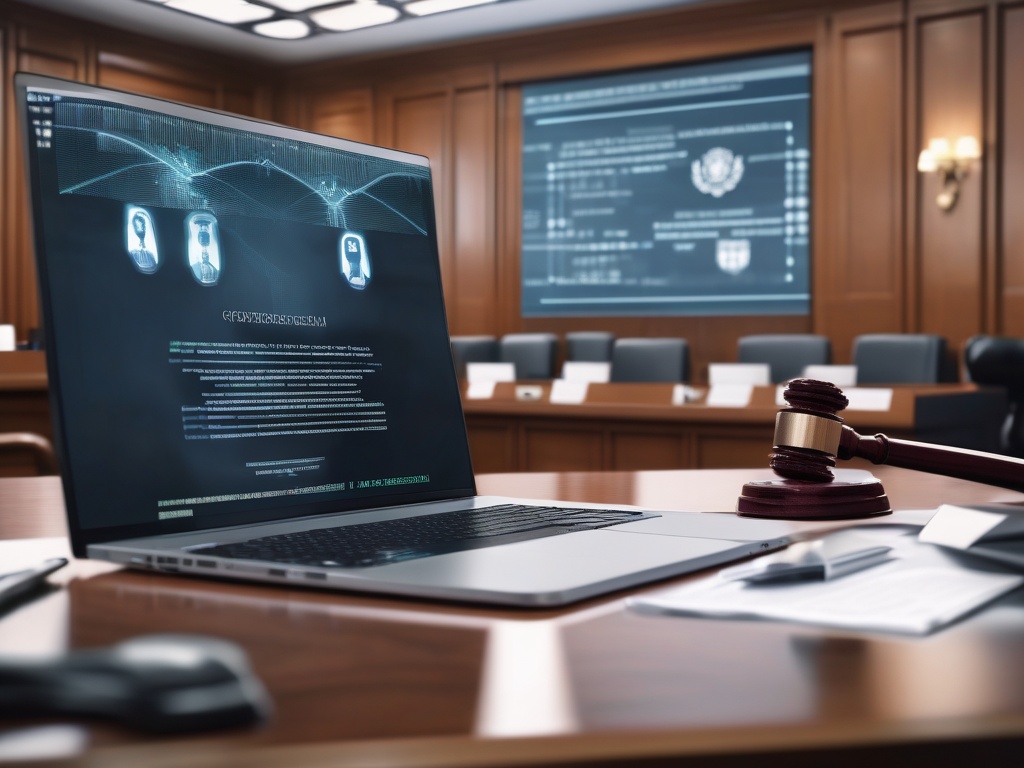
Unmasking the Digital Shadows: The Stark Reality of Cybercrime Charges
Stepping into the Dark Side of the Digital World
In an era where technology seamlessly integrates into every facet of our lives, the rise of cybercrime has cast a long, ominous shadow over society. Cybercriminals are no longer elusive hackers hiding behind screens; they are becoming sophisticated predators capable of devastating financial and personal security. Understanding the gravity of cybercrime charges is essential, as the legal repercussions can be severe, often involving extensive investigations, hefty fines, and even imprisonment. As technology evolves, so do the tactics used by authorities to unearth and prosecute these digital offenders, making the landscape complex yet critical to comprehend for all internet users.
The Legal Arena: Navigating the Complexities of Cybercrime Prosecutions
When individuals or organizations fall prey to or are accused of cybercrimes, they enter a labyrinthine legal arena where every digital footprint is scrutinized. Charges such as hacking, identity theft, cyber fraud, and distribution of malicious software carry significant penalties that can tarnish reputations and ruin lives. Prosecutors rely on a combination of digital forensics, international cooperation, and evolving cyber laws to build airtight cases. It’s imperative for accused parties to understand the specific statutes involved, the burden of proof, and the importance of expert legal counsel in mounting a robust defense. The stakes are high, and the nuances in cybercrime legislation can make the difference between conviction and acquittal. Recognizing the severity and complexity of these charges empowers individuals to take preventive measures and seek appropriate legal guidance if faced with allegations.
Legal Warfare in the Cyber Realm: Defending Against Cybercrime Allegations
The Digital Battlefield: Understanding the Legal Landscape
In the volatile world of cybercrime accusations, legal defenses are not merely about countering evidence; they are about navigating a complex web of digital laws and forensic intricacies. Defenders must grasp the nuances of cyber legislation, which often vary across jurisdictions, making international cooperation a critical component. The challenge lies in translating technical digital forensic evidence into legally admissible proof, a task that demands expert legal and technical collaboration. Recognizing how prosecutors leverage cutting-edge technology to trace, analyze, and build airtight cases is essential for anyone facing allegations.
Strategic Defense: Building a Resilient Case
Effective defense strategies hinge on a detailed understanding of the digital trail left by alleged offenders. Legal teams must dissect forensic reports, challenge the chain of custody, and scrutinize the methods used to gather evidence. Moreover, establishing reasonable doubt often involves demonstrating procedural errors, mishandling of data, or violations of privacy rights. This meticulous approach not only safeguards the accused’s rights but also underscores the importance of employing cyber law specialists who can interpret complex technical data into compelling legal arguments. Preparing for trial requires a proactive stance—anticipating prosecutors’ tactics and crafting a defense that emphasizes both legal and technical expertise.
In this high-stakes arena, the battle is fought on multiple fronts—legal, technical, and procedural. Understanding the intricacies of digital evidence, the specifics of cyber law, and the importance of a strategic, well-informed defense can significantly influence the outcome of cybercrime allegations.
The High Stakes of Cyber Offenses: Penalties, Consequences, and Future Implications
Engaging in cyber offenses opens a Pandora’s box of serious repercussions that extend far beyond mere legal reprimands. The ramifications can irrevocably alter personal trajectories and corporate futures, making it crucial for individuals and organizations to grasp the gravity of these charges. The potential penalties are not limited to fines or short-term imprisonment; they encompass long-lasting impacts that ripple through every aspect of life, from financial stability to reputation and mental well-being.
One of the most daunting aspects of cybercrime penalties is the severity of financial sanctions. Courts often impose hefty fines that can reach into the millions, especially in cases involving large-scale data breaches or financial fraud. These fines serve as both punishment and deterrent, but they also threaten the financial solvency of even well-established entities. Moreover, convicted offenders may face restitution orders, compelling them to compensate victims for damages incurred, which can be a crippling burden.
Beyond monetary consequences, the legal system frequently mandates lengthy prison sentences for serious cybercrimes such as hacking into critical infrastructure or orchestrating cyber terrorism. Such sentences are designed to underscore the societal importance of cybersecurity and to prevent future offenses. The intangible consequences—including tarnished reputations, loss of professional licenses, and social ostracization—are often underestimated but equally devastating, especially for those falsely accused or caught in the crossfire of a larger criminal investigation.
Looking ahead, the implications of a cybercrime conviction extend into the future, affecting employability, digital privacy rights, and even international relations. As governments and corporations ramp up cybersecurity measures, the legal landscape is evolving at a rapid pace. New laws and treaties are being drafted to address the global nature of cyber threats, meaning that today’s offense could result in complex extradition proceedings or cross-border legal battles. The evolving technology also means that legal penalties will become more sophisticated, targeting not just actions but also intent and potential future threats, emphasizing the importance of proactive legal and technical safeguards.
In this high-stakes arena, understanding the full scope of consequences—legal, financial, and societal—is essential. As cyber offenses grow in sophistication and frequency, so too will the penalties, reinforcing the need for vigilance and legal awareness to navigate this treacherous digital landscape effectively.
